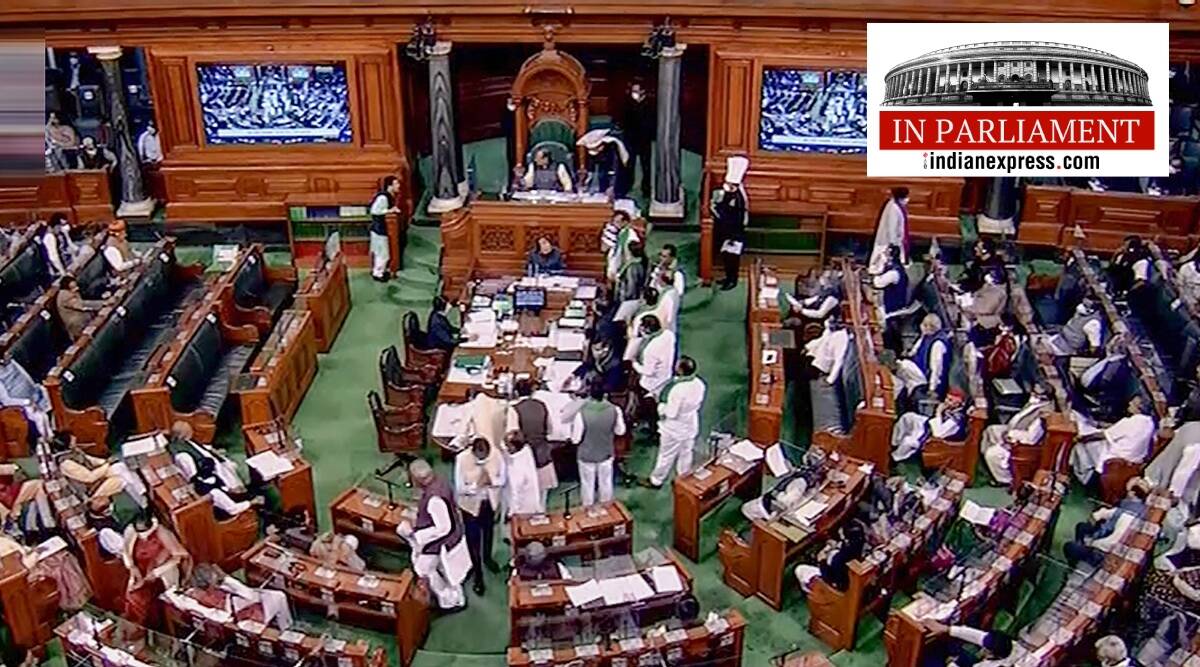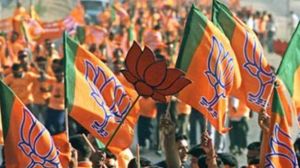The Lok Sabha on Tuesday referred the Multi-State Co-operative Societies (Amendment) Bill-2022 to a joint committee of Parliament comprising 21 members from the Lower House and 10 from the Upper House.
On December 7, the government had introduced the Bill that proposes merger of “any cooperative society” into an existing multi-state cooperative society.

Home Minister Amit Shah moved a proposal to this effect in Lok Sabha, which was approved by a voice vote. The committee has been given time till the last day of the first week of the second part of the Budget Session-2023 to present its report to the House. Lok Sabha Speaker Om Birla will appoint one of the members of the committee as its chairperson.
Of the 21 Lok Sabha members on the committee, a maximum of 12 are from BJP — Chandra Prakash Joshi, Jagdambika Pal, Parbatbhai Savabhai Pate, Poonamben Hematbhai Maadam, Ramdas Chandrabhanji Tadas, Annasaheb Shankar Jolle, Nishikant Dubey, Sunita Duggal, Brijendra Singh, Jaskaur Meena, Ram Kripal Yadav and Dhal Singh Bisen. Besides, two members are from Congress Suresh Kodikunnil and Manish Tewari, and one each from DMK (Kanimozhi Karunanidhi), TMC (Kalyan Banerjee), YSRCP (Sri Krishna Devarayalu Lavu), Shiv Sena (Hemant Shriram Patil), JDU (Dulal Chandra Goswami), BJD (Chandra Sekhar Sahu) and BSP (Girish Chandra).
The Centre has proposed this amendment through Section 6 of the Bill, introduced in Lok Sabha by Minister of State for Cooperation B L Verma. As per the present law, enacted 20 years ago, only multi-state cooperative societies can amalgamate themselves and form a new multi-state cooperative society.
But now, “any cooperative society may, by a resolution passed by majority of not less than two-thirds of the members present and voting at a general meeting of such society, decide to merge into an existing multi-state co-operative society: Provided that such resolution shall be subject to provisions of the respective State Cooperative Societies Act for the time being in force, under which such cooperative society is registered,” states the proposed sub-section (10) to be added in Section 17 of the 2002 law.
The Bill also seeks to establish a “cooperative election authority” to bring “electoral reforms” in the cooperative sector. For this, the government has proposed to substitute Section 45 of the 2002 Act. As per the proposed amendment, the authority will consist of a chairperson, a vice-chairperson and a maximum of three members to be appointed by the Centre.
Story continues below this ad
At the time of the introduction of the Bill in Lok Sabha, Opposition members, including RSP’s N K Premachandran and Congress’s Manish Tewari and Adhir Ranjan Chowdhury had opposed it. They were demanding that the Bill be sent to the Standing Committee, arguing that it seeks to “take away” state governments’ rights and is against the country’s federal structure.
The Bill seeks to insert a new Section — 63A — in the principal Act. This relates to “establishment of the Cooperative Rehabilitation, Reconstruction and Development Fund” for revival of “sick multi-state cooperative societies”. It also proposes to insert a new Section — 70A — relating to “concurrent audit” for such multi-state societies with an annual turnover or deposit of more than the amount as determined by the Centre.









